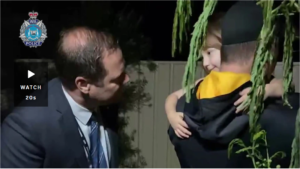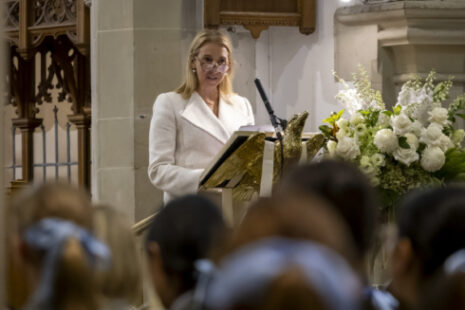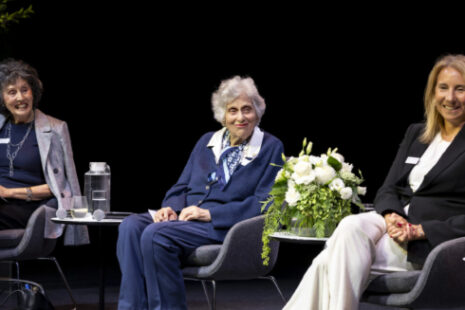Attitude of Gratitude
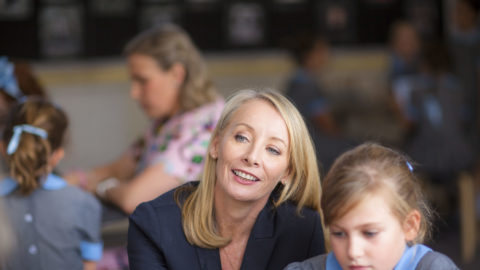
In a world where disturbing news and COVID-19 dominate the headlines, the story of a little girl being rescued and reunited with her family has captivated and pulled at the heartstrings of the nation.
Four-year-old, Cleo Smith was found “alive and well” inside a Carnarvon home in regional Western Australia on Wednesday morning. When police first shared the news that they had located Cleo safely, and returned her to her family, people across Australia shared countless messages of relief, elation and praise for the work of the police. This outpouring of gratitude for the skill and diligence of the WA Police Force was uplifting.
For 18 days Cleo was gone. For 18 days her family marked the minutes, hours and days – hoping and praying for news of their little girl. For 18 days parents across Australia questioned what they would do if they were in the same situation. For every parent, the thought of your child going missing or being in danger is harrowing.
Following little Cleo’s story, many parents may be inclined to discuss a ‘stranger danger’ approach to their children as a means of protecting them. Renowned psychologist, parenting expert and author Dr Justin Coulson, this week provided a timely reminder on the key point in keeping children safe. “To teach our children to beware of all strangers may not only frighten them, but may actually go against them at a time when they might otherwise need that stranger’s help. Black and white rules about stranger danger can be confusing,” Dr Coulson explains.
Coulson goes on to provide five recommendations to teach your children about strangers:
- Most strangers are good people, but that doesn’t mean we should be too trusting.
- If you are ever approached by a stranger, always check with your parents before doing anything with that stranger.
- If you are going somewhere with a stranger (for some currently unanticipated reason), always stay in public.
- There may be some instances, perhaps if you got lost or needed help, where you need to go to a stranger. If you do need to talk to a stranger, it’s always best to look for a mum with children and ask her for help.
- If you ever feel unsafe, like a stranger is following you, find another adult and explain what you are scared of. Because most strangers are safe, if you ask for help you’re very likely to get it. But if you are invited into someone’s house, always say no and just stay on the doorstep.
Another important skill for young children and adolescents to acquire is trusting their intuition, their ‘gut-feeling’, and applying some common-sense rules surrounding interactions with strangers, including:
- If you feel unsafe, move away from strangers.
- If a stranger promises you something really cool, like lollies, games, or butterflies, lizards, snakes, or whatever, say no and move away.
- If a stranger (or any adult) ever grabs you or touches you in a way that makes you scared, scream the following words: “Stop it! Help! Don’t touch me!” And scream them LOUD!
These conversations are ongoing between parents and children, to reflect the ages and stages of your child. As they grow into their freedoms it is essential to also continually remind them of their personal safety responsibilities. Further parenting resources can be found on Dr Coulson’s website: www.happyfamilies.com.au/resources
An Attitude of Gratitude
This week, we were reminded that amongst a news cycle bouncing from COVID restrictions, confrontational street marches, earthquakes and wild winds, that good things happen too. That kindness, concern and gratitude are alive and well in our society.
Marcus Cicero, Roman statesman and possibly one of the greatest orators of all time, recognised the importance of gratitude over 2,000 years ago when he said, “Gratitude is not only the greatest of virtues, but the parent of all others”. So very apt still to this day, in fact probably even more so today, when the world needs people to think outside of themselves.
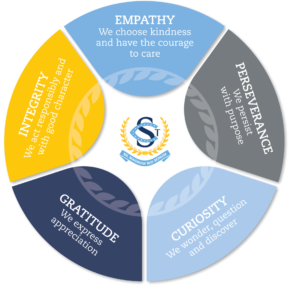 St Catherine’s School’s Wellbeing Team, ably led by Deputy Principal and Director for Student Wellbeing, Ms Merran O’Connor, led a school-wide review of our School’s core values, culminating in the addition of a fifth value, Gratitude. Within our Towards 2025 Strategic Plan our five values shape and focus our thinking and planning for the years ahead.
St Catherine’s School’s Wellbeing Team, ably led by Deputy Principal and Director for Student Wellbeing, Ms Merran O’Connor, led a school-wide review of our School’s core values, culminating in the addition of a fifth value, Gratitude. Within our Towards 2025 Strategic Plan our five values shape and focus our thinking and planning for the years ahead.
As a School we express Gratitude as an appreciation and to approach our lives and shape our behaviours with an ‘attitude of gratitude’.
Regardless of how we experienced the COVID pandemic in 2020 or 2021, we all have something to be grateful for. Every one of us can feel humbled by the care and support we received, the lessons we learned, or the people who were there when we needed them most. When we feel gratitude, we are better able to feel optimistic.
I am grateful for the amazing people who were there for me throughout the pandemic. I am grateful for our School team and how we rallied to ensure learning continued as usual. Most of all, I am grateful for how the St Catherine’s community united together over each of the six lockdowns and continues to join together time and again to support, care for and serve each other with no expectation of anything in return.
Through the inclusion of Gratitude to our School Values, we ensure this characteristic is firmly entrenched in our School culture and in the hands of every student who enters the Heyington Gates. American professor, lecturer, author, and podcast host Brene Brown provides a wonderful sentiment: “What separates privilege from entitlement is gratitude.”


